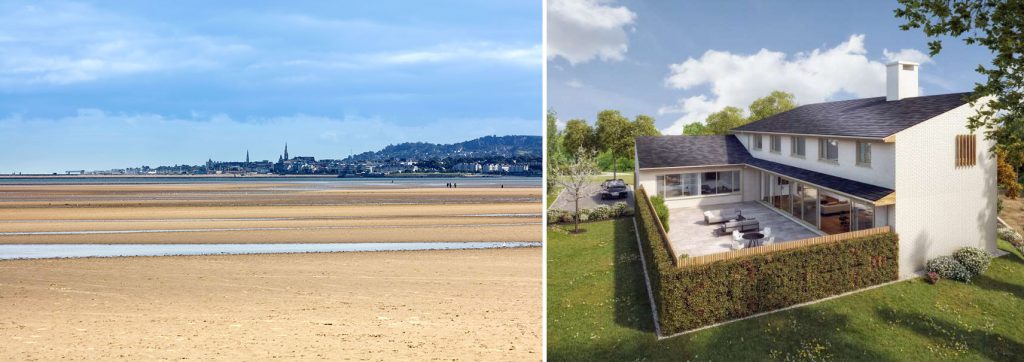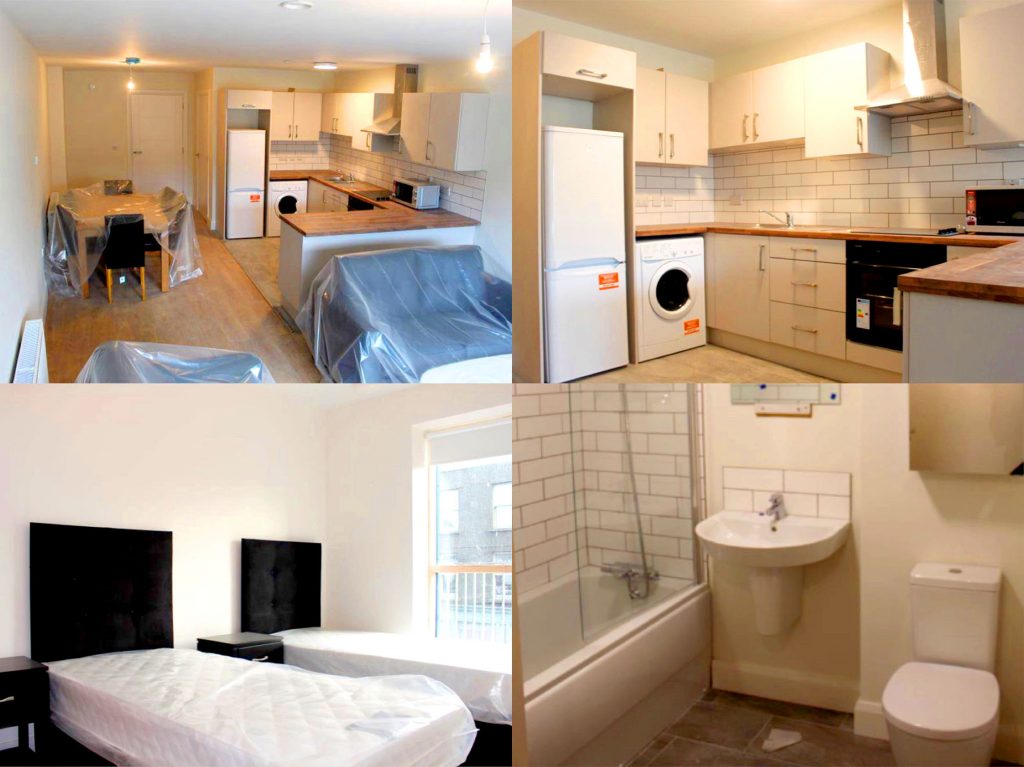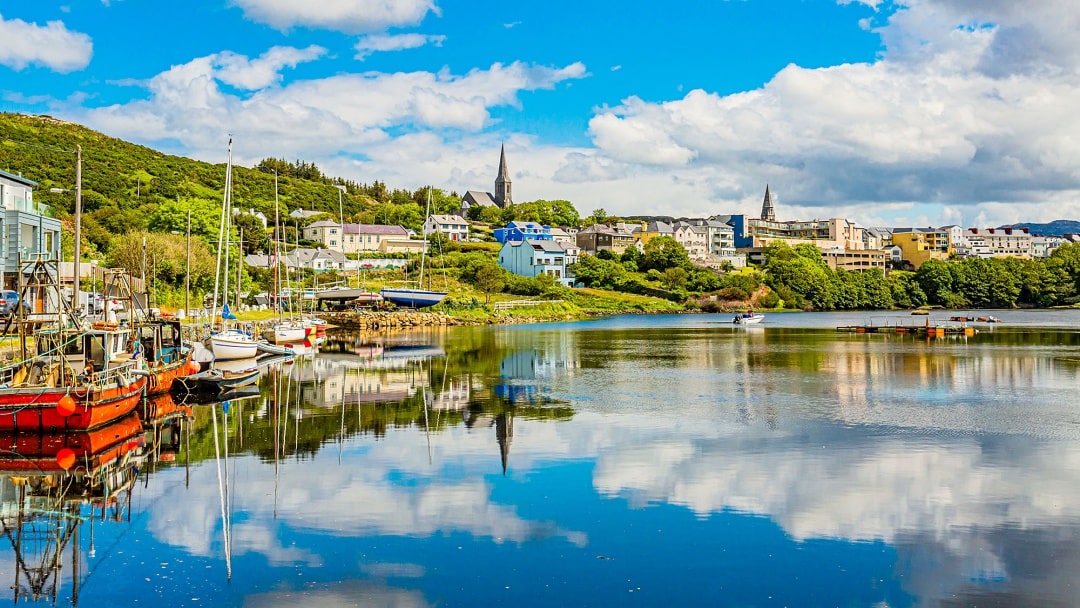Have you ever wondered what it’s like living in a country that rates second in the world for quality of life? In the United Nations Human Development Index for 2020, which measures longevity, education and wealth for 189 countries around the globe, Ireland ranked in joint second place with Switzerland, just behind Norway.
Quality of life is indeed what Ireland offers. Filled with rolling green landscapes and boasting a moderate climate and clean fresh air, Ireland has an abundance of nature and natural beauty. It is also one of the most talked-about food destinations in Europe, with plenty of produce exported around the world, from artisanal cheese and exceptional beef and lamb to fresh-off-the-boat seafood. Irish cuisine itself is tasty, characterized by simple, hearty cooking that follows the seasons. This can be enjoyed alongside some of Ireland’s most popular drinks, from Guinness to Jameson to Bailey’s, while the country’s pub culture, as well as its drinks venues, which range from secret speakeasies to glamorous lounges and cocktail havens, have their own draw.


The Emerald Isle is also one of the most open economies in the world with a large and vibrant international business sector (read our latest Market Update). The European Union member state is the only country in the EU whose first language is English and it offers unparalleled accessibility to the UK under the Common Travel Agreement (CTA) ensuring it is a unique place for FDI, working and living. After visiting Ireland, it is no surprise that many often decide to move there from the USA, Canada, the UK, Germany and many countries around Asia. Ireland has emerged as a prime destination for HNWIs and their families who are looking for a high standard of living.
Besides Ireland’s quality of life, there are a number of other indices where Ireland ranks favourably:
- Smiles all around – Ireland ranks 16th on the world happiness index, which is no small feat, especially as it rates above nations such as Germany, the USA and the UAE. Chances are you’ll always be greeted with a smile in Ireland’s many establishments
- Let’s do some business – Ireland ranks 24th on the ease of doing business index, and its status as a first-world tax haven makes it even more enticing to entrepreneurs and businesses to set up shop on Irish shores
- Outstanding healthcare – Ireland ranks 19th on the World Health Organization’s (WHO) overall healthcare system rankings, above many European counterparts including Switzerland, Belgium and Germany. Ireland also boasts 33 medical doctors per 10,000 people; to put that in context the UK has 28 and the USA has 26.
Overview and basic facts
If moving to Ireland sounds increasingly tempting, the process of making it happen can be easier than one might anticipate. First, a few more facts to cement the Isle’s appeal:
-1024x384.jpg)
-1024x384.jpg)
The Irish passport:
- Visa-free access to 185 countries
- The only EU passport that allows the holder to live and work in the UK
- Ranks 6th in terms of travel freedom (tied with the Dutch, French, Portuguese and Swedish passports). Find out more here.
Ireland at leisure:
Golfing: Scotland might be considered the birthplace of golf, but Ireland has a long and strong connection with the sport. It is home to the world’s oldest golfing union, the Golfing Union of Ireland, which was founded in 1891.
Yachting: Founded in 1720, the Royal Cork, formerly known as the Water Club of the Harbour of Cork in Ireland, holds the title of the oldest yacht club in the world.
Fishing: Ireland is one of the most popular sport fishing destinations in Europe. Its coastal waters abound with fish and visiting sports fishermen can anticipate a catch from more than 80 species ranging from a blenny of a few grams to a sixgill shark of over 400kg.
Prepare for your move
If you are visiting Ireland from the USA, Canada, Australia or many places outside the European Union, you do not need a visa to visit Ireland for up to 90 days. However, if you plan on living and working in Ireland, citizens of non-EU countries must apply for an Irish work permit, student visa or residency. If you are moving to Ireland from the UK, Germany or other EU countries, you are free to live, study or work in Ireland, however, you are required to register with the relevant authorities within your first month of moving.
Whether you are moving a few boxes or a whole household that might include children, pets and cars, there are multiple things to consider. Our Regional Director Jeffrey Ling interviewed Josh Sims, General Manager of Santa Fe, a relocation firm experienced in helping companies, families and individuals move to different countries. Sante Fe has offices throughout APAC, Europe and the US, including in Dublin, Ireland. Here are some of the essential things to know:
Housing
Finding accommodation in Ireland can be one of the more stressful aspects of moving to the country –and to Dublin in particular. As the capital is small and already has a large population, housing is limited. Expatriates can expect it to take at least a month to find the right home. And with a competitive housing market comes a fairly high average rent. Those relocating from overseas might consider purchasing property instead of renting. There are no legal restrictions on the ownership of real estate in Ireland so property can belong to resident or non-resident parties. There are also no restrictions on the transfer of ownership of property from one person to another. All this makes Ireland a great place to buy real estate and to do business.


When it comes to the capital, the question is where in Dublin is the best place to live? First thing to know is that the city is divided by the Liffey River, which cuts it in two, leaving Dublin with a north side and a south side. Southern districts such as D2, D4 and D6 are the most popular as they have good schools and are central locations that are convenient for family life, shopping and leisure. Popular neighbourhoods include Ballsbridge, Donnybrook, Ranelagh, Blackrock, Dalkey, Killiney, Malahide, Howth and Castleknock.
Worth also noting is that D7 Stoneybatter is considered Dublin’s hippest neighbourhood, filled with trendy bars and restaurants. It is also where Bartra’s latest IIP social housing project, which was completed on time despite disruptions caused by the pandemic and lockdowns, is located. Read more about Stoneybatter here.


Real site photos, Stoneybatter, Bartra’s social housing project
For more on Irish housing, read our article on Ireland’s property market, a worthwhile investment.
Obtain Irish residency in 6 months
Ireland not only tops the charts as the best immigration destination for HNWIs due to all that the country itself has to offer, but its investment immigration programme, the IIP, plays a crucial part as well. The IIP is simple and extremely quick, with processing times averaging between four and six months. It is also extremely welcoming of investors’ needs, as it gives them four options to choose from:
- Enterprise investment of €1 million in an Irish enterprise. This is the most popular option, chosen by 81% of all applicants, as chances of approval are highest if investing in a government-preferred sector, and there is the possibility of a good ROI
- Investment fund option in the value of €1 million
- Real Estate Investment Trust investment of €2 million
- A €500,000 philanthropic donation to a project which is of public benefit to the arts, sport, health, culture or education in Ireland
As well as offering investors more flexibility in their investment options, the IIP allows applicants to add their spouse and dependent children below the age of 24 to their application. And unlike many residency-by-investment programmes, the IIP does not require long periods of residency for the applicant to maintain their residency but instead requires them to stay only one day within Ireland per year. Simple and quick, it’s no wonder the IIP has historically maintained a steady stream of applications.
Ultimately, the truth is that Ireland has it all. And more investors are starting to see this. It ticks all the boxes and is well-positioned to hold the title of the best immigration destination for HNWIs indefinitely. The magnificent country, refined IIP, and attractive investments make it an option no investor should overlook when searching for a new home.
